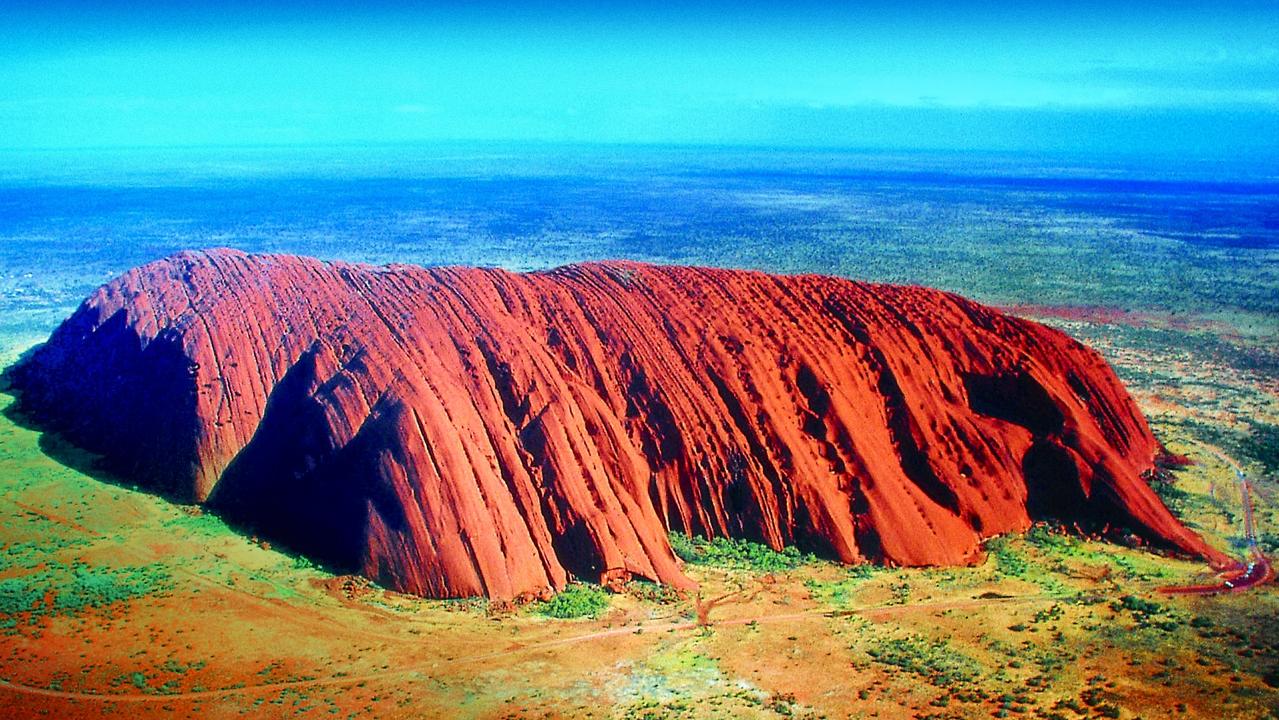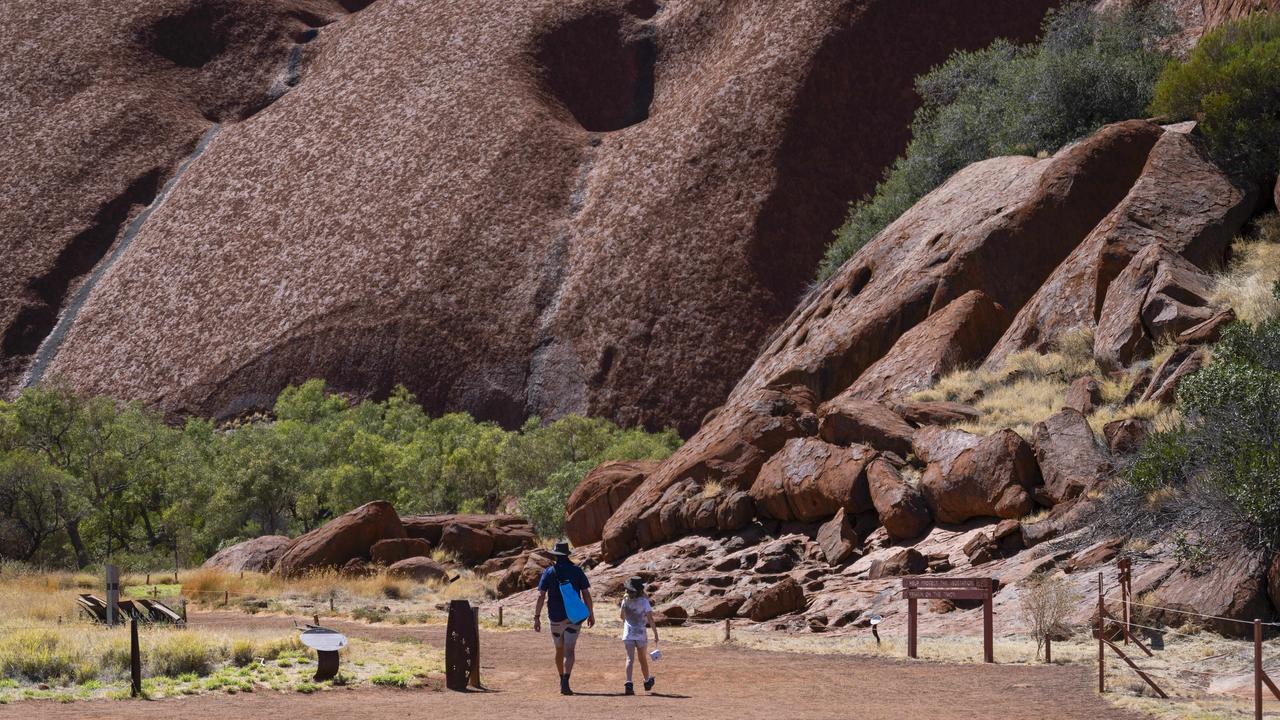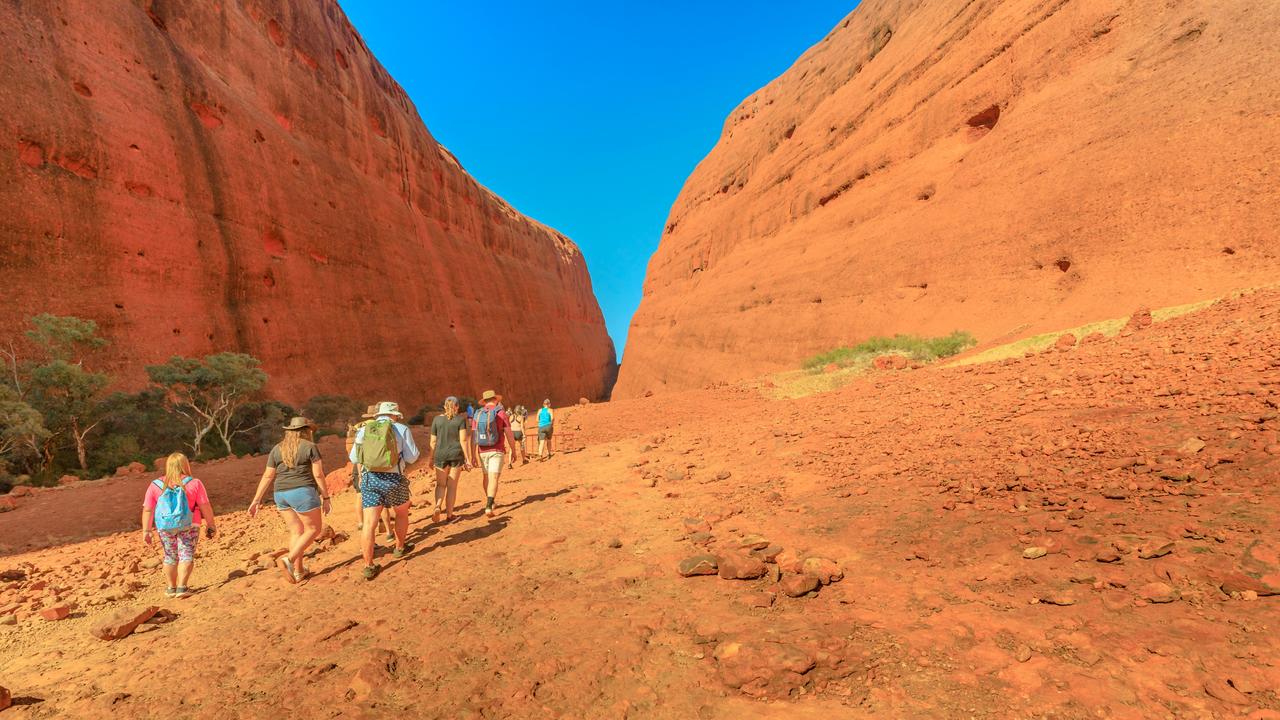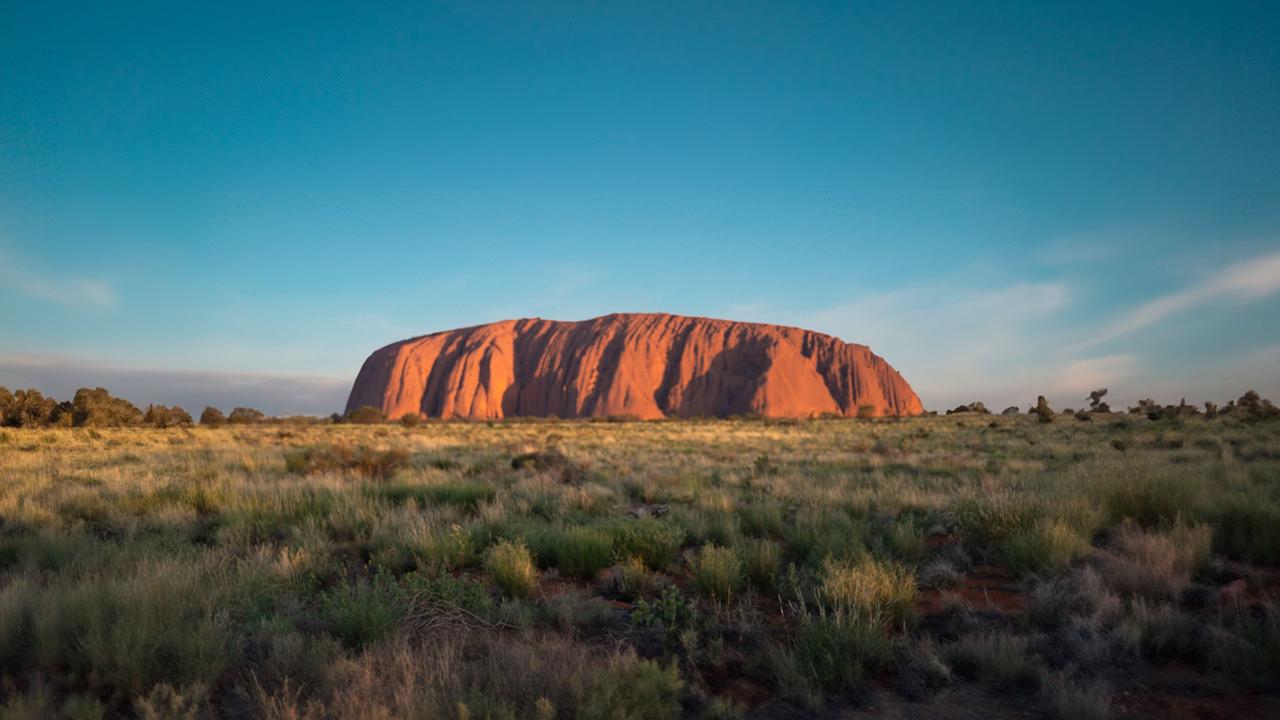Tourists banned from Uluru after defacing ancient rock art
Two Bhutanese citizens have been permanently banned from visiting Uluru after they defaced ancient artwork on the sacred rock, causing deep distress to the Anangu traditional owners

READING LEVEL: ORANGE
Two Bhutanese* tourists have been banned from Uluru after they were caught vandalising* the rock, with their embassy* apologising to the Anangu traditional owners for the “deep offence” the pair caused.
In its statement, the Royal Bhutanese Embassy in Canberra “conveyed its sincere apologies” after two citizens of the Himalayan country of Bhutan defaced the Kulpi Mutitjulu* sacred rock art.
The statement from the embassy did not give the age, gender, or name of the two nationals who defaced the rock, but said the pair “wrote a Sanskrit* message over ancient Indigenous artwork”.
The pair have been fined, removed from the park and barred from returning. In addition to causing deep offence to the Anangu traditional owners, the pair’s actions also led to a lengthy and difficult clean up process.

Uluru is part of the Uluru-Kata Tjuta National Park, which is overseen by Parks Australia.
It is also listed on the UNESCO world heritage* register, and is one of Australia’s iconic* tourist locations.
A Parks Australia spokesperson said the damage occurred in August 2024 and the affected site remained closed.
The traditional owners of Uluru are the Anangu, who are “distressed” by the damage, the spokesperson said.

“Some individuals were issued with infringement notices* with penalties” in relation to the damage, the spokesperson said.
“(Parks Australia) rangers and wardens* can issue infringement notices for certain offences under the Environment Protection and Biodiversity Conservation* Regulations 2000,” they said.
“The site is likely to remain closed until at least mid-2025, to allow for upgrades to security and visitor access at the site, in accordance with the wishes of Anangu. Any decision to reopen the area will be made in close consultation* with Anangu.
“Out of respect for Anangu and the distress the damage has caused, Parks Australia will not be providing more specific details regarding the incident.”

In their statement, the Bhutanese embassy said it wanted to remind all visitors of the deep cultural and spiritual connection of Uluru to the local community.
“The Uluru-Kata Tjuta area has been home to the Anangu people for over 30,000 years,” the statement said.
It went on to ask Bhutanese visitors to be mindful and respectful of the spiritual importance of sacred sites across Australia and to follow the regulations put in place.
POLL
GLOSSARY
- Bhutan: a country in south Asia between India and China in the Eastern Himalayas with a rich Buddhist heritage
- embassy: an official residence of an ambassador representing another country on foreign soil
- vandalising: deliberately destroying or damaging public property
- Kulpi Mutitjulu: an important cultural and historic site for the Anangu, a family cave, where, for generations, families would camp, telling stories around the campfire that are still told to Anangu children today
- Sanskrit: an ancient Indo-European language of India, considered one of the most ancient written languages of the world still used today
- world heritage: sites recognised as being of outstanding international importance and deserving special protection
- iconic: representing a particular culture
- infringement notices: fines
- wardens: officers
- Biodiversity Conservation: protecting the unique mix of plants, animals and other environmental factors that make up the landscape
- consultation: working closely together with the traditional owners
EXTRA READING
Queues of climbers spoil Uluru and parklands
Google’s virtual reality Uluru
Helium sky ship to give bird’s eye view of Uluru
QUICK QUIZ
1. What country were the two people who defaced Uluru from?
2. Who are the traditional owners of Uluru?
3. What is the name of the site that was defaced?
4. In what way was it defaced?
5. What language was used in the defacing?
LISTEN TO THIS STORY
CLASSROOM ACTIVITIES
1. Help them understand
Create a poster or online ad. The purpose of your work is to help tourists understand why places like Uluru are sacred sites, what this means and why they are so important.
Time: allow at least 30 minutes to complete this activity
Curriculum Links: English, Visual Communication Design
2. Extension
Why do you think it is taking so long for the site to be reopened to visitors? Write a list of reasons.
Time: allow at least 20 minutes to complete this activity
Curriculum Links: English, Science, Civics and Citizenship
VCOP ACTIVITY
BAB it!
Show you have read and understood the article by writing three sentences using the connectives “because’’, “and”, and “but” (BAB). Your sentences can share different facts or opinions, or the same ones but written about in different ways.

